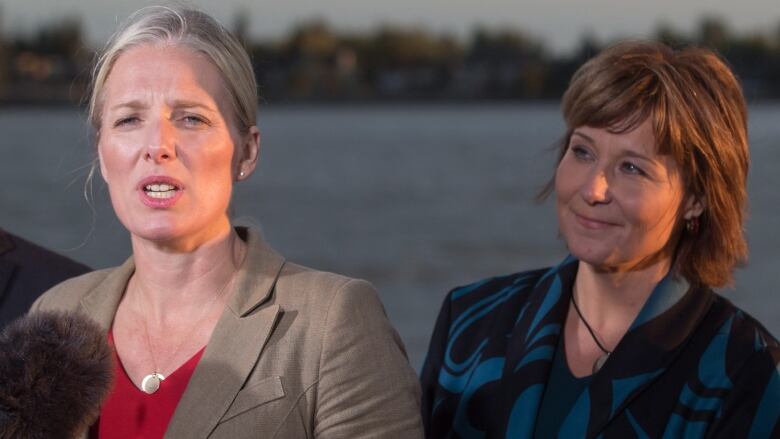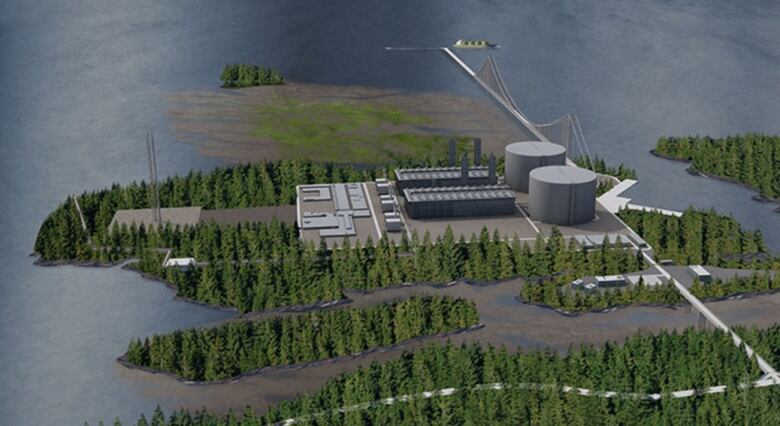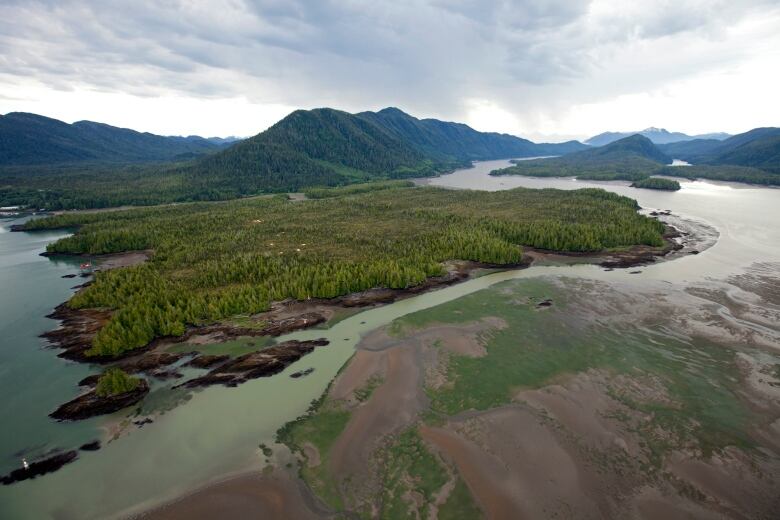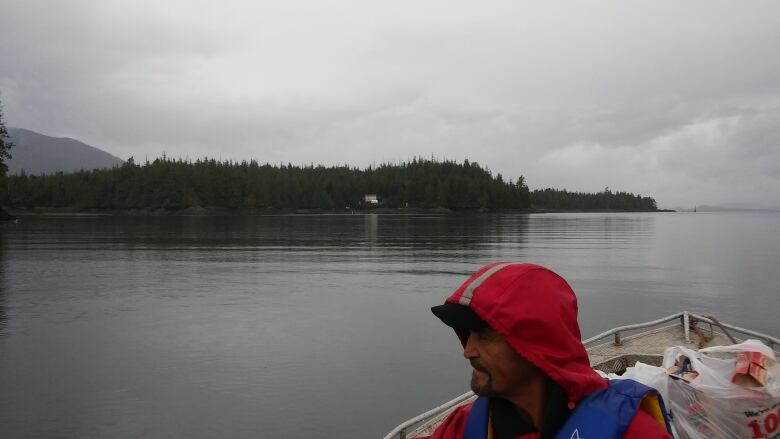Federal environment minister defends approval of Pacific NorthWest LNG
Catherine McKenna says Canada will still be able to meet climate obligations despite megaproject

Environment Minister Catherine McKenna's mandate letter from Prime Minister Trudeau last year made it clear: climate change is a priority for the federal government.
But yesterday's federal approval of the Pacific NorthWest LNG project a project that will produce an estimated fivemillion tons of carbon pollution every year has many observers questioning the Liberals' commitment to climate change prevention.
McKenna was on hand in Richmond yesterday to announce the approval of the project, and on Wednesday, she defended the decision in an interview with On The Coast host Stephen Quinn.
- Trudeau government at pains to explain Pacific Northwest LNG
- Federal government approves liquefied natural gas project on B.C. coast with 190 conditions
- Pacific NorthWest LNG project 'deeply concerns' climate change experts
You've heard some of the ways environmental groups are describing your government's decision to approve this project. How is this project in the best interests of Canadians?
The only way we're going to get resources to market is if we can do it in a sustainable and responsible way, and that's what we've done here.
This is a really big investment for Canada: $11 billion, amajor opportunity to grow the economy; 4,500 good, middle-class jobs, including union jobs,but it was clear we needed to have a robust environmental assessment to see whether this project should go ahead, and that's what we did.
This project has been under environmental assessment for three years. We had federal experts, scientists from across governments, looking at this project, looking at concerns raised with salmon, to see if there's a way we can mitigate the concerns.
We heard from some Indigenous people with traditional knowledge, to find measures to address their concerns. And I'm very proud thisis the first project ever that will have a joint monitoring committee with Indigenous peoples, with the federal government, with the provincial government, and also this is the first project with a hard cap on greenhouse gas emissions.

This project alone is projected to add 8.5 per cent to B.C.'s carbon emissions. Does that mean Canada won't be able to meet its climate targets?
We are very clear that we're going to meet our international climate targets. I was very pleased to see Premier Clark reiterate yesterday her commitment to increase B.C.'s carbon tax, because it's a recognition that the environment and the economy have to go together, and that's how we're developing our pan-Canadian plan. All major resource projects all have to fit within Canada's plan.
Lelu Island is considered critical fish habitat. We've spoken to numerous First Nations leaders who say this LNG facility could not be put in a worse place. What do you do about protecting salmon habitat?
There's different measures that have been taken, including the project design. There's a large bridge that's going to be built, so you can minimize the impact in the spawning area.
There's measures in respect to sound, in respect to light, and ultimately, our scientists decided based on the evidence, based on the traditional knowledge, that there would not be significant effects on the salmon. We have a number of committees involving the local First Nations, where they are actively involved, for the first time ever, in monitoring the impacts of this project.

But it's not just the project: your government issued two permits in August allowing construction of the Site C dam to continue. How can the prime minister continue to say he's respecting the concerns of First Nations groups when they consider this move a betrayal?
In this case, we consulted with Indigenous communities from the start, including Lax Kw'alaams, who are part of the monitoring committee. The communities located right by the project have significant economic agreements with the proponent, so they're engaged with this project.
It's going to create economic opportunity.I think this is really the way we move forward. We're thoughtful;we listened. Maybe not everyone's going to feel happy, but in this case, the concerns that have been raised, for example, around fish and fish habitat, have been addressed.

LNG supply from countries like Australia and the U.S. are outpacing demand. LNG prices have dropped by a third in the last two years. Petronas seems in no rush to start this project. How is approving this development a sound economic decision?
This, I think, sends a signal to the market, to international investment, that we have a fair, transparent, rigorous, science-based process to get resources to market. It's now up to the proponent to make the determination of whether the economic conditions exist for this project.
[IMAGE
]With files from CBC Radio One'sOn The Coast
To hear the full story, click the audio labelled:Environment minister defends approval of Pacific NorthWest LNG












_(720p).jpg)


 OFFICIAL HD MUSIC VIDEO.jpg)
.jpg)



























































































